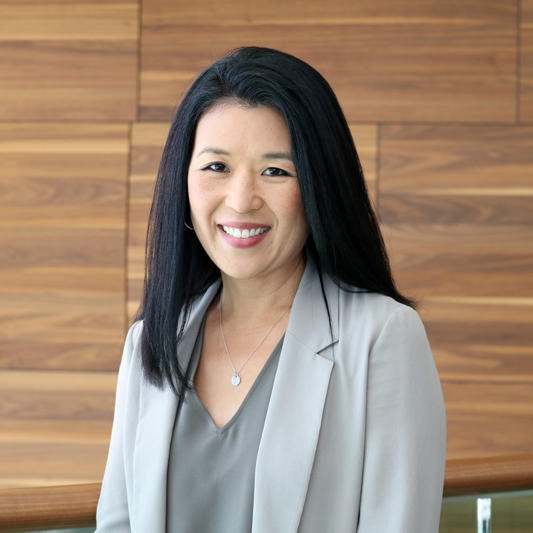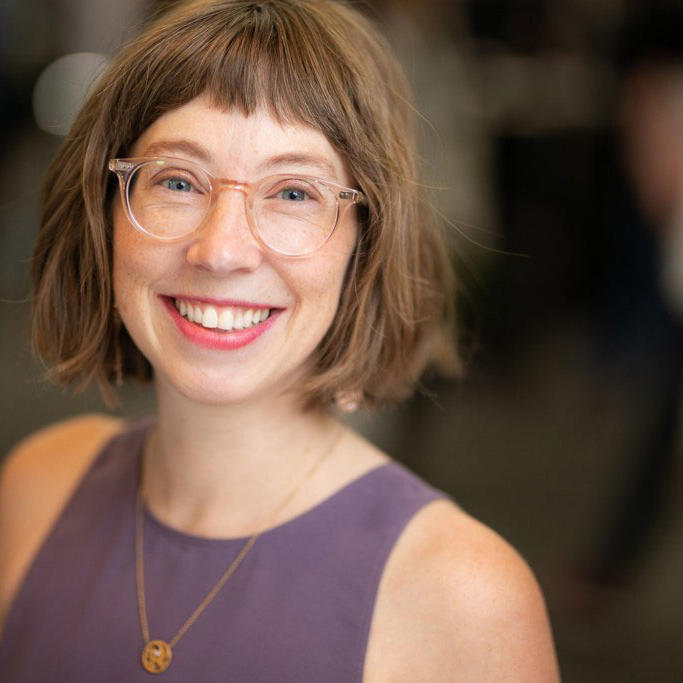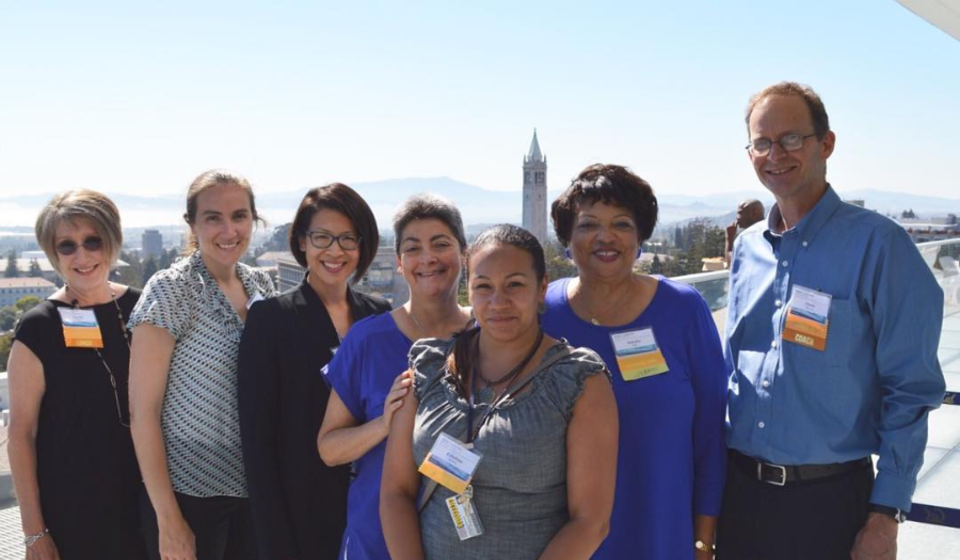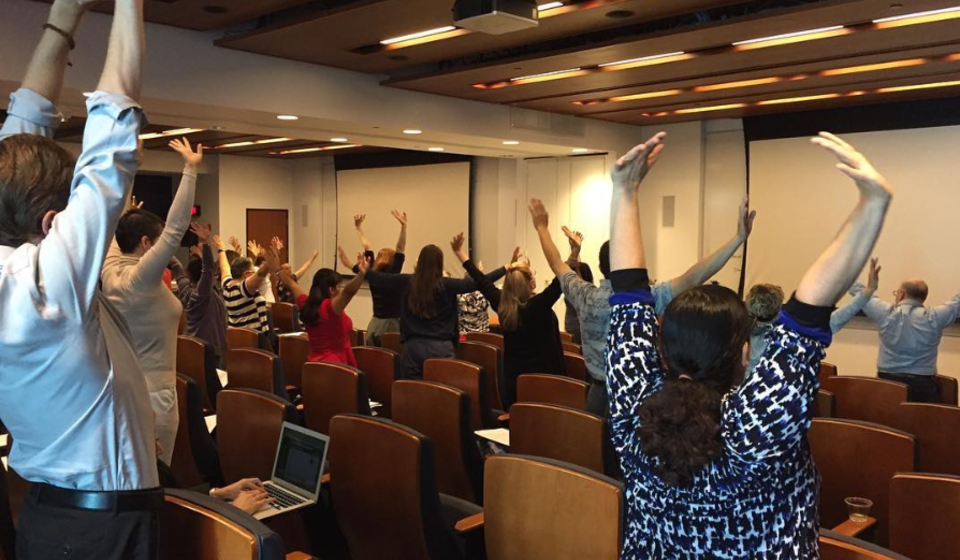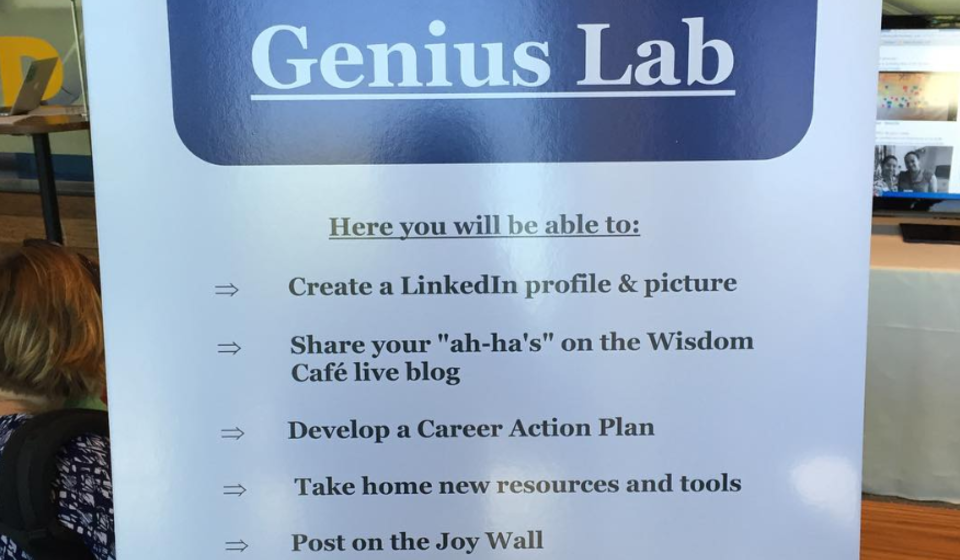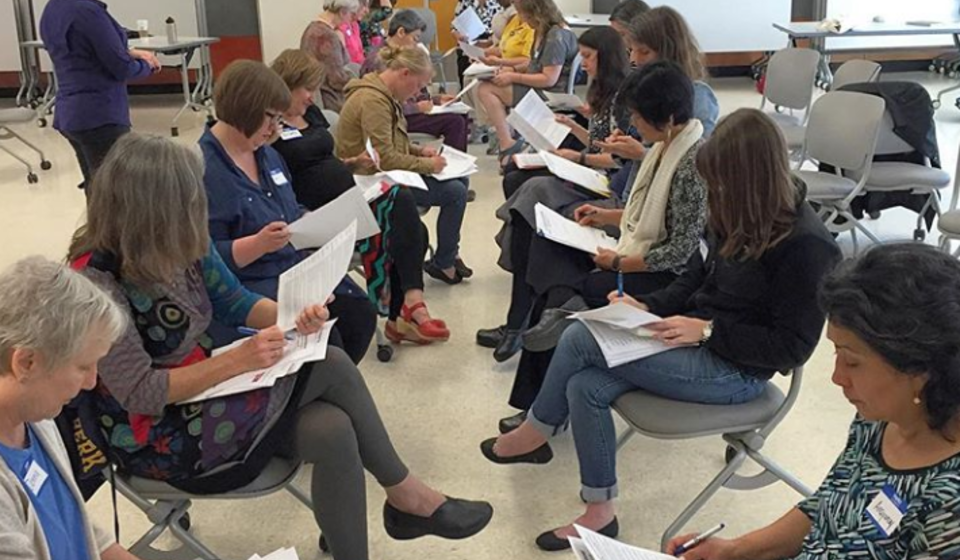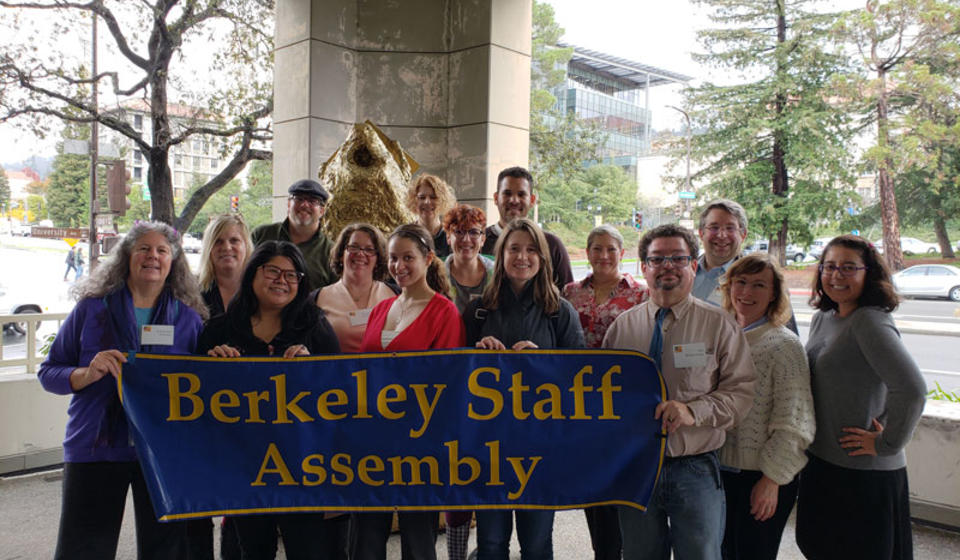What roles have you had throughout your time at Berkeley?
I have been blessed over the past 10+ years to have many varied and progressively more responsible positions on campus -- first in an academic department, then on two different campus projects, and most recently in a central campus unit. My first position at Berkeley in 2008 was as the interim director of student services for the psychology department, a role that became permanent after six months. I loved the psychology department and working closely with faculty and students, but after three years I was ready for a bigger challenge with broader campus impact.
I wanted to move into organizational consulting and project management, so in 2011 I started looking for opportunities with the Operational Excellence (OE) initiative, and eventually landed a position with the Campus Shared Services (CSS) implementation team -- first serving as an organizational consultant and then, once CSS was launched, as the learning and development lead. After three years with CSS, I transitioned to the OE Program Office where I served as the business process management project manager. My most recent transition brought me to the Office of the Executive Vice Chancellor and Provost (EVCP) where I first served as a special projects administrator (2015), then was promoted to deputy chief of staff (2017), and just recently assumed my current role as the chief of staff to the EVCP (2019).
Similar to your trajectory more people are currently advancing along varied directions that comprise a “lattice,” instead of strictly “up the corporate ladder.” What factors do you think helped you grow and switch positions to different departments successfully?
There were many factors that helped me grow and transition successfully. In 2009 I participated in a campus-wide Leadership Development Program (LDP) which offered me enhanced leadership skills, project management skills, exposure to campus units and leaders outside the field of student services, as well as an introduction to a fabulous mentor, then Haas CFO Alice Kubler. Alice was a tremendous support to me in my job exploration and search and introduced me to several of her colleagues including Associate Executive Vice Chancellor Phyllis Hoffman (who I would come to work for five years later). These things- and my willingness to risk moving from a career manager position to a contract-based individual contributor position with an uncharted and high-stakes project (CSS)- were key in my ability to transfer from the field of student services to that of organizational consulting and project management.
Just like the work of any start-up organization, the work of launching CSS was very challenging; however, it offered me the opportunity to learn new skills, build relationships with people from all over campus, and show my value as a competent, productive, team-player. My ability to land my next positions with the OEPO and EVCP, were, I believe, made possible by my positive reputation, my strong campus network, my work ethic, and my ability to communicate the transferability of my skills and experience.
What challenges did you face when seeking your next opportunity and how did you overcome them?
Prior to joining the CSS implementation team, most of my professional experience had been in the areas of student services and communications. I have a master’s degree in psychology and knew I wanted to move into a role that was related to organizational development, but I had no real hands-on experiences in this area. When a colleague sent me the job description for the organizational consultant role with CSS, my first reaction was, “I don’t have those skills and qualifications.” But with encouragement from Alice, a couple other colleagues, and the belief that I could learn what I didn’t already know, I decided to apply. I actually applied for three different OE and CSS related positions. I wasn’t selected right away but I kept putting myself forward and eventually secured a position.
Many people, especially women, won’t apply for opportunities unless they have 95% of the listed skills and qualifications. Learning to put myself forward in spite of the little voice inside my head that was saying “you aren’t sufficiently qualified” or “you don’t know how to do that” has led me to new opportunities and positions I could have never imagined for myself. When I came to Berkeley 10 years ago, I didn’t even know what a chief of staff did, let alone could I imagine being selected to serve as the chief of staff to Berkeley’s second in command. That limited thinking was a symptom of my lack of confidence back then- rather than my lacking transferable skills or potential.
You’ve been involved with a staff org, and have even been a leader in one. Did that contribute to your growth and if so how?
Yes! I got involved in the Berkeley Facilitator Network (BFN) in 2009 and was asked by a colleague to serve as the BFN co-chair in 2013. This role was pivotal for me in many ways. Besides improving my facilitation and public speaking skills, BFN offered me the opportunity to further develop my leadership toolkit, my project management skills, and my campus network. Serving as co-chair was a significant time investment, but it was definitely worth it. Serving in this role not only taught me some very important personal and professional learnings, but also was the foundation for a few very cherished lifelong friendships.
I have also been involved in other staff organizations over the years including as a founding co-chair of a community of practice for Student Services Directors, a founding member of the Cal Women’s Network (CWN) and as a participant in the Business Process Analysis Work Group (BPAWG), the Cal Assessment Network (CAN), and the Agile community of practice. I would highly encourage staff to get involved in an identity-based staff organization or community of practice, especially at the leadership level, if they are looking to develop their breadth of campus experience and their professional network.
You won an Excellence in Management award. Great managers take an interest in their staff’s growth and development. How do you encourage your staff’s development?
Being nominated for and receiving the Excellence in Management award when I served as the director of student services in the psychology department was one of my proudest moments. Contributing to the development of others is one of my greatest passions. I derive a lot of personal satisfaction through the process of helping others be their best selves both personally and professionally.
As a supervisor, I think it is critically important to encourage those I supervise to consider the areas in which they want to develop themselves, and areas that would support their effectiveness in their current positions and their future job opportunities. Just recently I had a conversation with one of my supervisees about taking some of the courses that are now available to staff interested in developing their people management skills. This is a great opportunity to develop core supervision competencies, especially for those staff who want to become supervisors or managers but have not yet had much experience with actual supervision.
I also encourage staff who I supervise to participate in other on-campus opportunities such as Communities of Practice, the NOW Conference, and the BSA Mentorship Program. I have served as a mentor to four staff in three different cycles of the mentorship program and it has been highly rewarding for me and, I believe, also fruitful for my mentees.
Any final words of wisdom to staff looking to grow their careers at UC Berkeley?
-
Believe in yourself -- don’t underestimate what you are capable of just because you haven’t done something before.
-
Take risks -- whether it’s getting out of your comfort zone by joining a staff org event, contacting someone for an informational interview, volunteering for a committee or special project, or applying for a job that appears to be just beyond your reach, risk-taking is essential if you want to learn and grow.
-
Follow the stars -- As my mentor, Alice, often reminds me, who you work for is as important (if not more important) as the work you do. If you anticipate that in the future you will be seeking new opportunities, don’t just look at jobs you might be interested in, look at leaders for whom you might want to work or collaborate and start to develop connections with them now.
If you’d like to advance your career with today’s methods read about the corporate lattice model- here.
Andrea Lambert is the Chief of Staff to the Executive Vice Chancellor and Provost. She has been part of the UC Berkeley community for over 10 years.
To set-up an informational interview email andrealambert@berkeley.edu or connect with her on LinkedIn - https://www.linkedin.com/in/andreaklambert
Never miss a staff profile by signing up for the Wisdom Cafe newsletter.
P.S. - Know someone at Berkeley (including yourself!) who has changed jobs or has unique expertise to share? E-mail us at wisdomcafe@berkeley.edu to have them featured.


